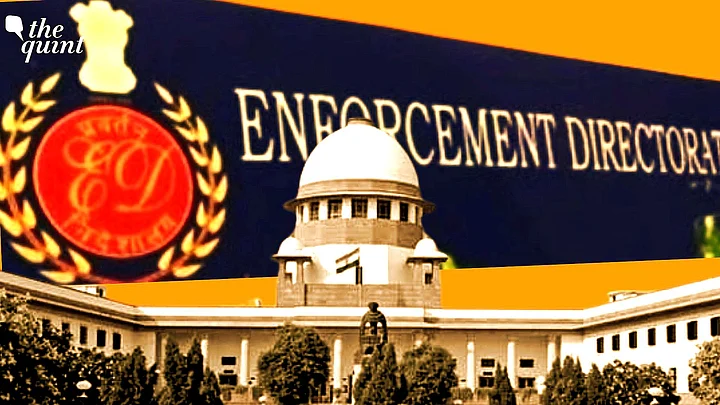A review petition was filed before the Supreme Court of India on Monday, 22 August, against the apex court’s judgment dated 27 July, which upheld the constitutional validity of provisions under the Prevention of Money Laundering Act (PMLA).
"Okay, we will list it," a bench headed by Chief Justice NV Ramana said after the plea was mentioned before it, according to Bar and Bench.
On 27 July, a bench headed by Justice AM Khanwilkar upheld the validity of provisions of the PMLA, including strict bail conditions in money laundering cases, in variance to previous Supreme Court judgments.
Other provisions related to arrests, search, seizure, attachment, admitting statements made to the Enforcement Directorate (ED) as evidence, and the non-requirement to supply an Enforcement Case Information Report (ECIR) were also upheld.
The Centre has been insisting money laundering is an offence that is committed not only by unscrupulous businesspersons but also terror organisations, posing a grave threat to national security.
The Supreme Court's Previous Order
The Supreme Court had on 22 July, passed its order in the batch of petitions concerning the the interpretation of the Prevention of Money Laundering Act, 2002 (PMLA).
The court upheld the 'twin conditions' for granting bail under the Prevention of Money Laundering Act in their order.
It also said, among other things:
Section 5 (powers regarding attachment of property involved in money-laundering cases), of the PMLA is constitutionally valid. The procedural safeguards provided herein are effective measures.
Challenge to validity of Section 19 (Enforcement Directorate’s power to arrest), rejected as they are “stringent safeguards.”
"Twin-conditions" for bail under Section 45 of the Act upheld, and the Parliament is competent to amend Section 45 to weed out the defects pointed out in the Supreme Court judgment in the Nikesh Tharachand Shah case (which had struck down the twin conditions).
Authorities under this Act are not police officers as such.
Section 63 ( punishment for false information or failure to give information) of the Act does not suffer from arbitrariness.
Supplying of Enforcement Case Information Report (ECIR) is not mandatory and disclosure of reasons during arrest is enough.
ECIR cannot be equated with FIR.
Challenge to PMLA’s reversal of burden of proof rejected
The bench led by Justice AM Khanwilkar did however state that it had not decided on the question pertaining to whether the amendment to the PMLA could not have been by way of the Finance Act. “It is open to be interpreted after the decision of the larger Bench,” it said.
The petitioners in the case had raised the issue of the contents of ECIR not being disclosed to the accused.
The court's judgment came after over 200 petitions were filed by individuals and other entities, questioning various provisions of the PMLA, which the Opposition has often claimed has been weaponised by the government to harass political adversaries.
